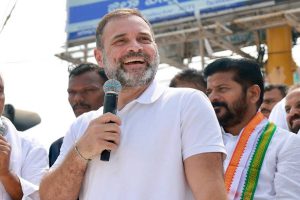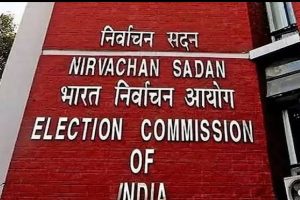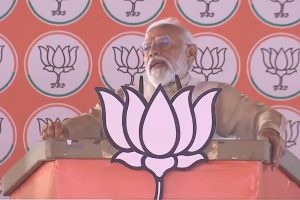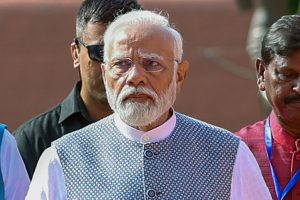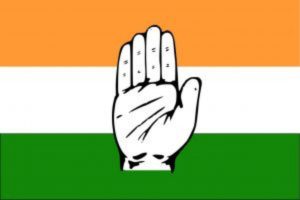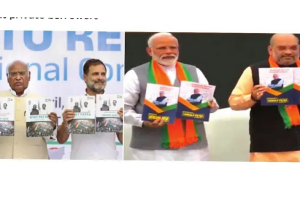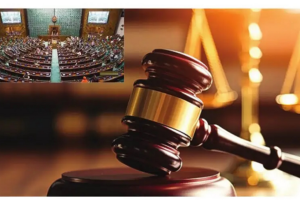The Kashmir conflict is a territorial conflict primarily between India and Pakistan. It started soon after Partition in 1947. The two countries have fought three wars over Kashmir ~ in 1947, 1965 and 1971, besides the Kargil operations of 1999.
India claims the entire princely state of Jammu and Kashmir, and, as of 2010, administers approximately 43 per cent of the region. It controls Jammu, the Kashmir Valley, Ladakh, and the Siachen Glacier. India’s claims are contested by Pakistan, which administers approximately 37 per cent of the region, namely Pakistan Occupied Kashmir (PoK) and Gilgit Baltistan.
China currently administers the remaining 20 per cent mostly uninhabited areas, the Shaksgam Valley, and the Aksai Chin region gifted by Pakistan to China. The root of the conflict is over the annexation of Kashmir.
Democratic development was limited in Kashmir until the late 1970s, and by 1988, many of the democratic reforms introduced by the Indian Government had been reversed. From 1989 terrorists from Pakistan started infiltrating from across the line of control (LoC) to stoke unrest in the Valley in order to disrupt the functioning of the democratically elected governments in Kashmir.
Although thousands of people have died as a result of the turmoil in Jammu and Kashmir, the conflict has become less deadly in recent years. Protest movements created to voice Kashmir’s disputes and grievances with the Indian government, specifically the Indian military, have been frequent since 1990. Elections held in 2008 were generally regarded as fair by the United Nations High Commissioner for Refugees and had a high voter turnout in spite of calls by separatist militants for a boycott. The pro-India J&K National Conference then formed a government in the state. According to Voice of America, many analysts have interpreted the high voter turnout in this election as a sign that the people of Kashmir had endorsed Indian rule in the state.
But in 2010, unrest erupted following allegedly fake encounters. Thousands of young people targeted security forces with stones/rocks, burned government offices and attacked railway stations and official vehicles. The violence has thus intensified. The Indian government blamed separatists and Lashkar-e-Taiba, a Pakistan-based militant group for triggering the 2010 protests. Elections held in 2014 saw the highest voter turnout in 26 years.
However, analyst explain that the high turnout in Kashmir is not an endorsement of Indian rule by the Kashmiri population, rather most people vote for daily issues such as food and electricity. An opinion poll conducted by the Chatham House international affairs think-tank revealed that in the Kashmir Valley ~ the predominantly Muslim area in Indian Kashmir at the centre of the insurgency ~ the striking feature is the support for independence in 74 per cent of its districts. Support for the rest of India was, however, extremely high in Jammu, Ladakh region and even Gilgit and Baltistan regions.
According to Pakistani scholars, Indian forces have allegedly committed human rights abuses and acts of terror against the civilian population, including extra-judicial killings, rape, torture and enforced disappearance. Since 1990, there has been an alarming increase in crime. According to Amnesty International, as of June 2015, no member of the Indian military deployed in Jammu and Kashmir has been tried for human rights violations in a civilian court, although there have been military court martials. Amnesty welcomed this move but cautioned that justice should be consistently delivered and prosecutions of security forces be held in civilian courts. The perpetrators of the crime including the security forces wherever found guilty by the local government are suitably punished, but the solution to rein in stone pelters, who are involved in thwarting counter-terrorism operations, is yet to be devised. J&K politicians have completely ignored such counter-mobilisation. The hands of the security forces are tied.
Recently, seven civilians were killed in the clashes that erupted after an encounter in South Kashmir’s Pulwama district on 16 December. More than 15 people were injured after security forces allegedly fired at the stone-pelters near the site of the encounter.
In the morning, three terrorists ~ including jawan-turned-terrorist Zahoor Ahmad Thokar ~ were killed in the encounter. An Army jawan was also killed and two other soldiers were seriously injured during the encounter. Hizbul Mujahideen had claimed in July that Zahoor Ahmad Thokar of 173 Territorial Army, who was missing along with his service rifle and ammunition, had joined the militant outfit. Security forces said Thokar was involved in several killings in Pulwama district.
The encounter broke out after the security forces launched a cordon-and-search operation in Sirnoo village after receiving specific intelligence input about the presence of terrorists in the area. In a statement, the J&K Police said, “Loss of civilians is deeply grieved. We once again appeal to citizens to remain away from encounter site, as it is a prohibited zone, which involves significant danger to life. A case has been registered. Incriminating materials, including arms and ammunition have been recovered from the encounter site.” Political parties in Kashmir, notably the National Conference and PDP, have condemned the killings. They claim that Governor Satya Pal Malik-led administration has “failed” to secure people’s lives.
Though the encounter ended in 25 minutes with the killing of the three militants, the security forces faced a tough time to ward off stone-pelters who are impeding anti-terrorist operations to help terrorists escape safely.
The security forces had to open fire in self-defence to ensure that the terrorists are punished and do not escape. The parents and teachers of these young stone-pelters must be advised not to interfere with the anti-terrorist operations of the army to safeguard their own lives. The intelligence sources have revealed that these stone-pelters are paid Rs 7,000 to Rs 20,000 per month by the separatists who need to be punished for secessionist activities.
READ | Serious, not insurmountable~II
(The writer is retired Professor of International Trade. He may be reached at vasu022@gmail.com)



